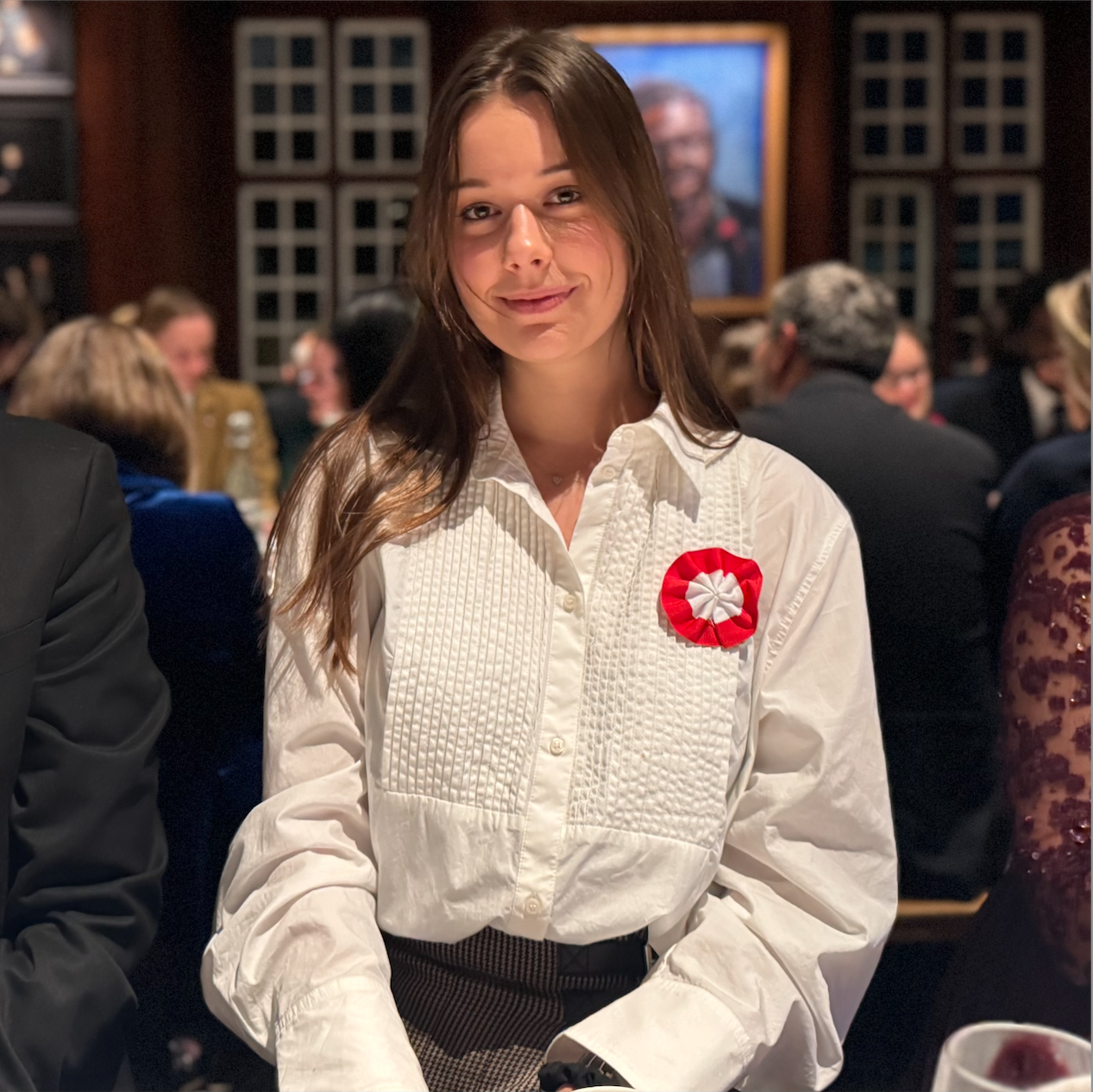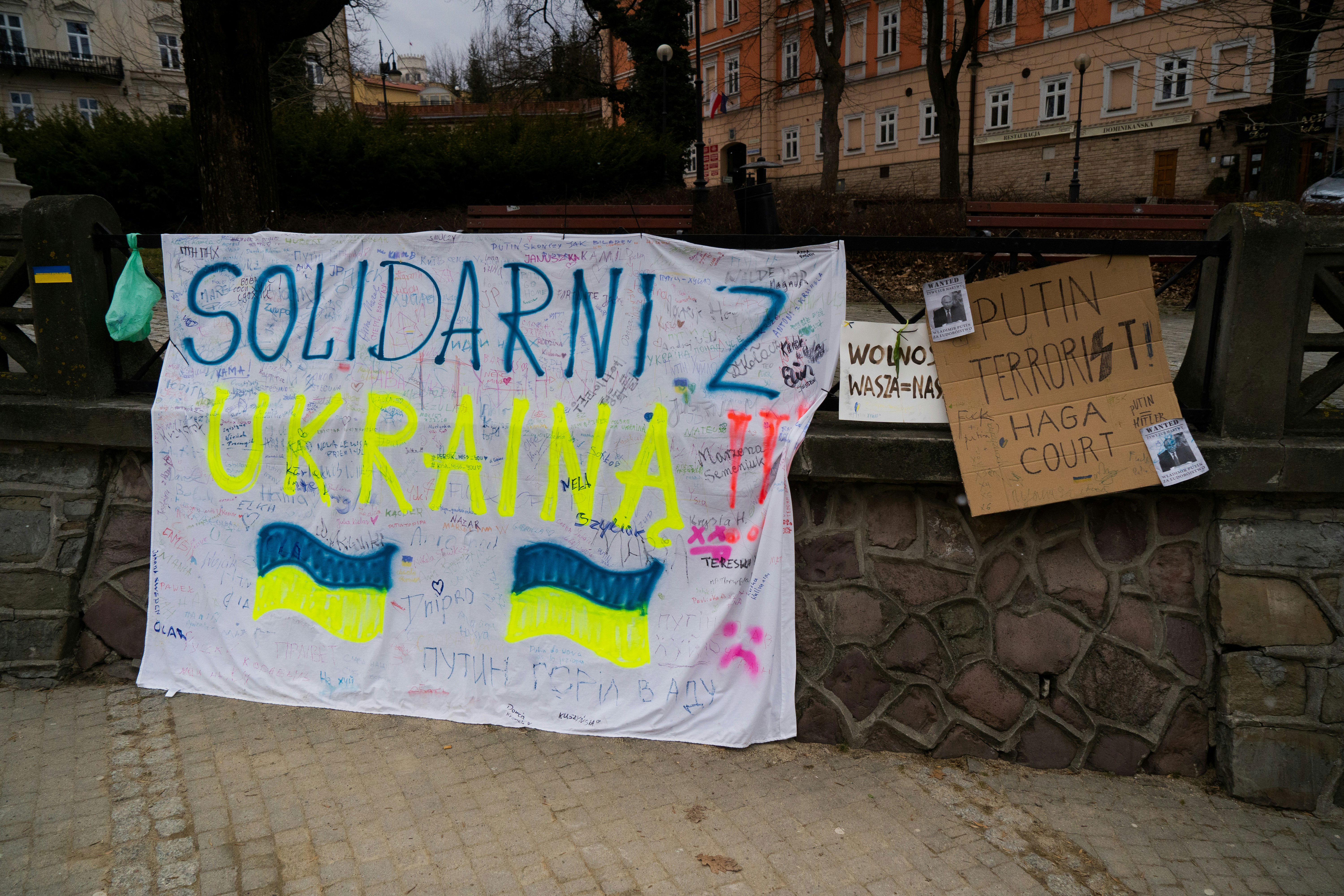When Poland Speaks with One Voice: Media Unity on Moldova’s Elections and Russian Threats

Gosia Koroluk, MPhil in Modern Languages (French and Russian), University of Oxford
With a liberal Prime Minister and a conservative President, Poland remains one of the most ideologically divided societies in Europe. That considered, moments of national solidarity beyond political sympathies reward Polish citizens with double joy. This was the case in 2022, when Poles of all backgrounds united to help Ukrainians escape the war – a citizens’ intiative that preceded any official measures taken by the government. Since then, solidarity against the real threat coming from Russia, ‘the common enemy’, has persisted as the nation’s strongest unifying force.
On the eve of 2025 parliamentary elections in Moldova, a strategically important region for Russia, I began closely observing how the Polish media covered the event. As a Polish national myself, committed to European liberal democracy, I hoped for voices of support to Maia Sandu’s party from Polish political journalists. Still, despite my full awareness of the country’s internal polarisation and the positions of particular political parties towards Russia and the West, I was unsure what to expect. Would the Polish political scene overlook its usual divisions for the sake of offering mutual support to democratic Moldova?
With the goal of analysing the whole spectrum of opinions, I intuitively selected major outlets representing the views of the left (The Political Critique), liberal democrats (Politics, Newsweek) and conservatives (To The Point, TV Republika, InPolitics). Then, equally mindful of the voice of the Catholic Church in Polish politics, one that at times dangerously harmonizes with the Kremlin’s praise of traditional social policy, I consulted articles published by Sunday Guest and Polonia Christiana. Lastly, committed to finding examples of the Kremlin’s influence in the Polish media sphere, only after long minutes of scrolling I managed to identify an openly pro-Russian outlet – Polish Thought.[1]
Overall, the outcome of my research proved reassuring. When it comes to the Russian threat, Poland speaks with one voice.
Political Battles Aside
The Moldovan elections were not the dominant topic in Polish media during the last weekend of September. On the eve of voting day, most major outlets shared only general information about the threat of Russian influence in Moldova, followed by brief reports on PAS’s victory on Sunday the 28th. What was particularly striking in that case was that media outlets normally at odds with each other – such as TV Republika, which supports the conservative Law and Justice party, and TVN24, which aligns with the liberal opposition – set ideological battles aside. They both recognised that countering Russian influence in Europe and supporting Maia Sandu’s party lay in Poland’s national interest.
For TV Republika such a move was not self-evident, considering that the channel regularly uses narratives about ‘the corrupt West’ and ‘the threat of LGBT ideology’ to attack Donald Tusk and his government. The same applies to wPolityce.pl, a conservative outlet often spreading anti-EU and anti-Ukrainian sentiment in Poland. Yet this time, it published an extensive article warning that a pro-Russian coalition victory in Moldova would be “a death wish”, precluding EU accession and risking the country “being dragged into the war against Ukraine”.
Despite certain ideological convergences, one must not forget that the right side of the Polish political scene has, in fact, a long history of resisting Russian expansionism in Europe. Historically, it was especially President Lech Kaczyński from the conservative Law and Justice party who set the example as one of the strongest opponents of Putin’s imperialism, especially remembered for his solidarity with Georgia after the 2008 invasion.
Bearing in mind that Russia’s increased influence in Moldova directly translates into increased geopolitcal threat for EU countries, it was encouraging to see both the Polish left and right recognising security priorities and temporarily putting internal divisions on hold. Just as I thought this might be the best response an avid EU supporter could expect from Polish journalists, I found another reason to be optimistic.

Image Credit: unsplash.com
Unpacking Russia’s Playbook
Certain media outlets went further, publishing in-depth, thoughtful analyses of the Moldovan elections, aimed at raising awareness of Russian diversion tactics. Mateusz Mazzini, writing for the liberal, democratically-oriented Politics, sought to raise awareness about Putin’s expansionist ambitions in Moldova. His title, “Moldova chose Europe and defended itselft from the Ruski Mir”, touches on a sensitive part of Poland’s historical identity – even today, terms like “ruski”, “Ruscy” or “ruski mir” are derogatory references to all things Russian. He further draws attention to the Soviet symbolism in the logo of the pro-Russian Patriotic Bloc: a hammer and sickle inside a five-pointed star. In Poland, where the trauma of communism still lingers despite 35 years of independence, such imagery evokes deeply negative connotations on both sides of the political divide.
Mazzini then explains how the Russian Orthodox Church has recruited Moldovan believers to spread pro-Kremlin content on social media platforms in exchange for funded pilgrimages to Russia and other financial benefits. Citing investigations by Le Monde, BBC and OCCRP, he reveals that the Kremlin spent hundreds of millions of dollars on disinformation, the corruption of government officials, illegal investments, and illicit trafficking in Moldova – a country of just 2.4 million people.
In the most popular newspaper representing the left side of the political spectrum (Krytyka Polityczna), I came across two articles by Paweł Jędral further explaining Russia’s outlook on Moldova – “a tiny and divided country that has long served as a testing laboratory for (disinformation) tactics that can then be used in other countries”. Tackling Kremlin propaganda narratives, among other methods targeting democracy in Moldova, the author leaves Polish readers with no illusions about Russia’s motives. He ends with a clear warning: “These are the mechanisms that could one day, in a more sophisticated form, be used against us”.
Polish Catholics against Russia
Polish attachment to Catholicism historically played a crucial role in long-standing cultural resistance to Russian expansionism. Nowhere was this more apparent than in Pope John Paul II’s endorsement of the Solidarity movement, which helped pave the way for the fall of communism in the late 1980s. Still, there could have been doubts about whether Catholic media in Poland would oppose Russian influence in Moldova. Why?
In 2020, Klementyna Suchanow investigated the Polish fundamentalist Catholic organisation Ordo Iuris, proving its ties to Russian oligarchs (Konstantin Malofeev, Vladimir Yakunin) through the World Congress of Families. Although Ordo Iuris is known for its radical anti-abortion and anti-LGBT stances, it represents an ideological wing of the Polish Catholic Church – one whose values often overlap with the Kremlin’s socially conservative messaging.
Yet again, I had underestimated the right-wing media’s willingness to stand up to Putin. In the Catholic weekly Gość Niedzielny, I found another thorough analysis of Russia’s disinformation efforts in Moldova, specifically touching upon the corruption of Moldovan clergy. The unnamed editor explains how, similarly to Orthodox pilgrims bribed by Moscow, Moldovan priests were encouraged to set up propaganda channels on Telegram, spreading narratives that, while not openly pro-Russian, perfectly aligned with the postulates of pro-Russian fractions popular in Transnistria. The editor of Gość, though more restrained than Jędral or Mazzini, commits to exposing Russia’s corrupting influence on Moldovan clergy, quoting Maia Sandu’s security advisor Stanislav Secrieru, who accused the Kremlin of “weaponising religion [and] exploiting [Moldova’s] most trusted institution: the Church”.
Another Catholic, anti-EU outlet, Polonia Christiana, published a more balanced summary of the Moldovan elections, featuring a photo of Maia Sandu cheerfully casting her vote. While the brief post is hardly opinion-forming, as it simply reprinted information from the Polish Press Agency, it neither promoted the Kremlin’s narrative on supposed electoral fraud by Sandu and her EU supporters nor spread disinformation – and that, in this case, was good enough.
Nonetheless, the Kremlin narratives did find their way into Polish media.
Russian trolls: Between Konfederacja and Myśl Polska
On the day of a Russian drone attack on Poland, internet users instantly committed to countering disinformation suggesting that it was the fault of Ukrainians – a narrative that came from the East. One viral meme showed a traditional folk band welcoming wedding guests with bread and salt, captioned: “Konfederacja at the border as Russian drones enter Poland”.
The far-right Konfederacja has long been known as a politically suspect party attracting anti-Semites, anti-vaxxers, radical pro-lifers and undercover Putin supporters. Shortly after PAS’s victory in Moldova, ex-leader Janusz Korwin-Mikke tweeted: “Moldova has chosen. The fascist government (that came to power due to electoral fraud) banned two pro-Russian parties from standing in the elections and did not allow exit polls. Another fraud incoming.” Korwin-Mikke simply reproduced one of the Kremlin’s widespread claims of ‘electoral fraud’, questioning the fairness of Moldova’s Central Electoral Commision which disqualified Moldova Mare and Heart of Moldova in the final days of the campaign due to their illegal funding sources. While the OSCE Parliamentary Assembly recognised that the last minute deregistration of candidates may have hampered the pluralism of the Moldovan elections, it simultaneosuly revealed Russia’s hybrid efforts to target democracy in the country “with cyber-attacks, disinformation campaigns, intimidation, illicit financing and vote buying schemes”.
Apart from Korwin-Mikke’s tweet on X.com, finding pro-Russian coverage of Moldovan elections in the Polish media has been a real challenge.
The one exception was the pro-Russian newspaper Myśl Polska, labeled “the main hub of Russian disinformation in Poland” by the 2004-2024 Commission for the Study of Russian and Belarusian Influence. An anonymous article by “Andrzej Dołęga” alleged electoral fraud, citing the “exclusion” of Moldovans in Transnistria, Gagauzia and Russia – “electoral engineering (…) which goes against fundamental rights of equality”. Another article, dated 29th September, accused Maia Sandu’s “regime” of using “all possible tricks to prevent the opposition from coming to power – threats, blackmail, searches and arrests of opposition activists”.
While the EPDE’s Observation Mission recognised that “restrictive conditions” and “frequent, late ammendments” by the Moldovan government undermined the predictability of the electoral process, Myśl Polska purposefully shifts the focus away from Russia’s subversive role in the elections. According to the same report, this was manifested through “illegal financing of parties, cyber-attacks, paid protests, manipulation via religious actors, and disinformation campaigns”. Moreover, having analysed the activity of a pro-Russian fugitive oligarch Ilan Shor, EPDE identified the external influence in the electoral process as “not isolated but systematic”.
Lesson learned
The Polish media bravely stood yet another test in Russia’s ongoing cyberwarfare against Europe. Not only did journalists across the political spectrum support the democratic Moldova, but some took the time to meticulously analyse and explain the insidious propaganda tactics used by the Kremlin.
Thanks to this vigilance, pro-Russian disinformation had very little resonance in Poland, if we take into account an isolated tweet and a marginal newspaper which, for instance, dedicates entire articles to criticising the ‘anti-Putin’ nature of the Chopin Competition.
Interestingly, the coverage of Moldova’s parliamentary elections led me to numerous observations about the Polish political scene’s ability to unite despite internal divisions.
Since antipathy to Russia in the right wing tends to prevail over hostility to liberal values, paradoxically, Polish conservatives can be seen to uphold the EU’s ideological line, which they otherwise heavily criticise. A parallel effect can be observed among liberal democrats – while their hostility to Russian imperialism prevails over attachment to democratic principles such as balance and objectivity, progressives often resort to the same excessive patriotism for which, in other contexts, they tend to criticise reactionaries.
Thus, a question arises: is the threat to national security a sufficient excuse to give up on one’s political beliefs?
This can only be answered by the governments of countries that have historically experienced the repercussions of Russian imperialism. Today, one thing is certain: distrust, resistance, and unity against Russian inflluence are vital for Poland’s sovereignty – as still, as for most of modern history, being pro-Russian means being anti-Polish.
[1] (pol.) Krytyka Polityczna, Polityka, Newsweek, DoRzeczy, TV Republika, wPolityce.pl, Gość Niedzielny, Polonia Christiana, Myśl Polska